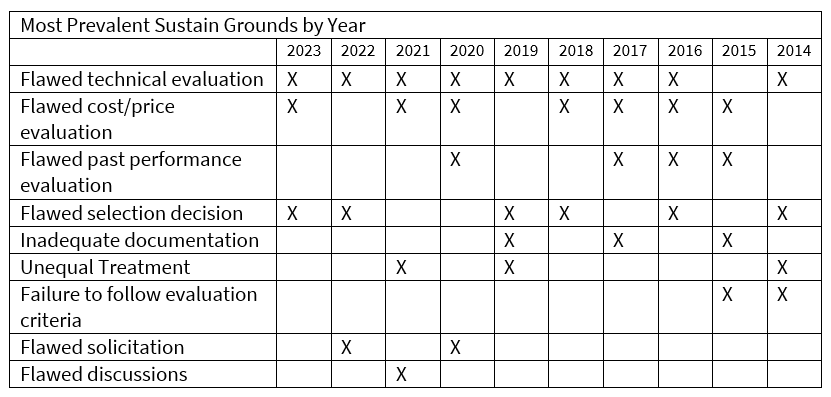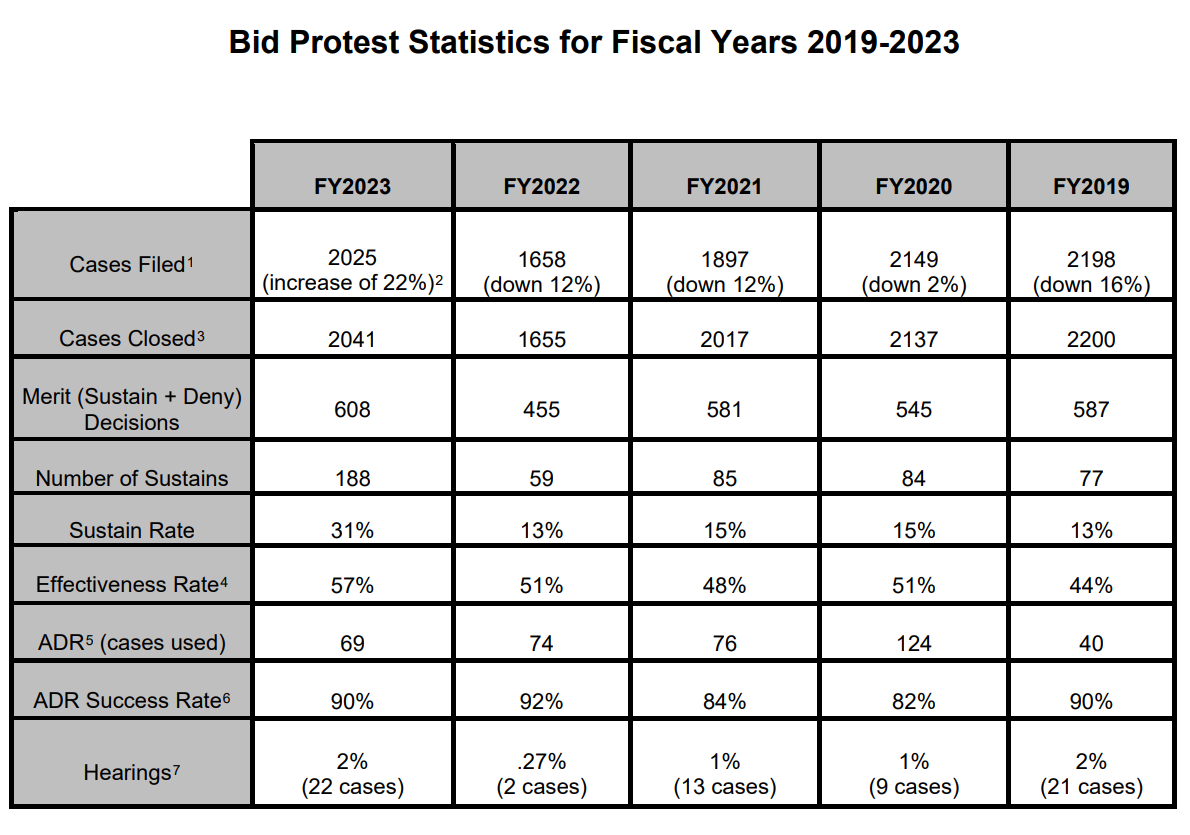GAO’s Bid Protest Sustain Rate Soars, but Is There a Catch?
Client Alert | 24 min read | 11.06.23
On October 26, 2023, the U.S. Government Accountability Office (GAO) released its Annual Report on Bid Protests for Fiscal Year 2023.
The total number of protests filed and the number of protests sustained by GAO increased significantly compared to Fiscal Year 2022—and GAO’s “Sustain Rate” jumped to 31%. GAO downplayed these increases to a degree, highlighting that it received “an unusually high number of protests challenging a single procurement”—the Department of Health and Human Services’ award of Chief Information Officer-Solutions and Partners 4 (CIO-SP4) government-wide acquisition contracts—which resulted in over 100 sustained protests. Nonetheless, even excluding the CIO-SP4 protests, it appears that GAO’s “Effectiveness Rate” (the percentage of cases in which the protester received relief, such as voluntary corrective action or a GAO sustain) was comparable to prior years—at or near 50%. Thus, bid protests remain an important oversight mechanism for the federal procurement system.
The most prevalent grounds upon which GAO sustained protests in FY 2023 were (1) unreasonable technical evaluations; (2) flawed selection decisions; and (3) unreasonable cost or price evaluations. The most prevalent grounds for sustained protests over the past ten years are detailed in the table below:

GAO’s full statistics for FY 2023 are shown below:

Insights
Client Alert | 4 min read | 04.14.25
Foreign Corrupt Practices Act (“FCPA”) enforcement has been fairly predictable for many years as the Fraud Section of the Department of Justice (“DOJ”) has maintained exclusive authority over investigating claims and bringing enforcement actions in federal courts across the country. President Trump’s recent pause on FCPA enforcement, the first of its kind since the statute was passed in 1977, has created significant uncertainty for individuals and businesses operating internationally regarding the future of FCPA enforcement. While DOJ is in the process of assessing what the future of FCPA enforcement, state attorneys general are stepping in. On April 2, California Attorney General Rob Bonta issued a Legal Advisory (the “Advisory) to California businesses explaining that violations of the FCPA are actionable under California’s Unfair Competition Law (UCL). The announcement signals a shift in FCPA enforcement where states may take the lead and pursue FCPA enforcement through their state unfair competition laws.
Client Alert | 4 min read | 04.10.25
Hikma and Amici Curiae Ask Supreme Court to Revisit Induced Infringement by Generic “Skinny Labels”
Client Alert | 1 min read | 04.09.25
Client Alert | 12 min read | 04.09.25




